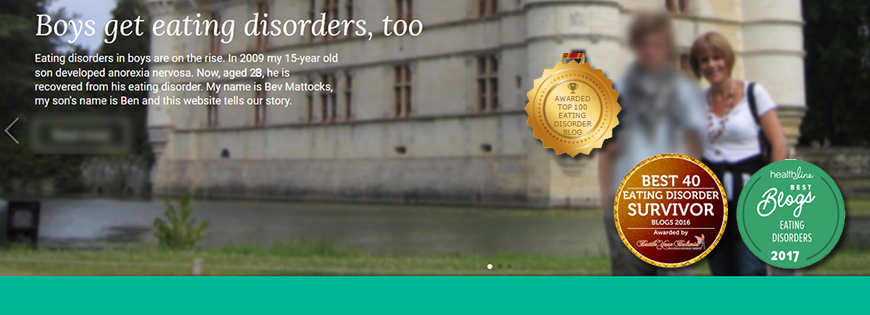Carrie Arnold's 4th point on her excellent and informative list is: 4. Weight isn't the measure of how sick you are. Not that weight and health have nothing to do with each other, but you can be very ill with anorexia and be at a "normal" weight. Remember, you can drown just as easily in six inches of water as you can in six feet or six miles. Now this is the point that really hit a nerve with me...
Over the summer of 2009, Ben lost one quarter of his bodyweight. Before, he was a big burly rugby player. He played #3 in the team, a position given to the biggest, toughest boys. After, he was a frail, bony waif who, if he'd attempted rugby, would have snapped in half.
Yet no-one would ever admit that Ben had anorexia. (Except his dad and me, of course...)
The NHS says that: People with anorexia generally have a BMI below 17.5.
But, because, even at his lowest, Ben hovered around 0.5 BMI above this level, his eating disorder was always referred to as an "anorexia-type" illness, or "EDNOS" (Eating Disorder Not Otherwise Specified). Or he had "eating disordered thinking and behaviour".
Officially, he never had anorexia.
As Carrie says above, "Remember, you can drown just as easily in six inches of water as you can in six feet or six miles". And, believe me, Ben was drowning fast.
He was very, very sick. And the signs were screaming out... flashing in Las Vegas lights... that Ben had anorexia, and he had it seriously.
Yet, because he could never be "officially" diagnosed with anorexia, I don't believe his illness was taken as seriously as it should have been.
Not until he was hospitalised... twice... with a pulse rate of 29-30bpm.
I once asked CAMHS why Ben wasn't being treated using the Maudsley Approach. Did they ever do Maudsley FBT? Yes they did, they said, but it "only worked with younger adolescents" and those with lower BMIs.
In other words, because of his age (16 at the time) and BMI (not low enough to be officially diagnosed with anorexia), re-feeding Maudsley style wasn't considered to be appropriate. I pushed for re-feeding at first, and had some success with re-feeding using my (unfortunately tweaked - see other post) version of Eating Plan 6. Yet, three sessions out of every four, I was excluded from his treatment, so I was doing it alone.
As I forged ahead with the eating plan, Ben gained weight gradually over a period of a few months until one day he downed tools and refused to cooperate any longer. So control of his eating and food preparation was handed back to Ben.
Over the next 7 or 8 months his weight headed steadily south as he battled to "make the right choices" and begin to "want to recover".
Of course I know that the Maudsley approach doesn't work for everyone. But I believe that, if you feel it has mileage with your child, then you should be given the chance to give it a try. After all, it seems to be the most successful of all treatments for anorexia, so why not?
But my argument is that, if he'd have been a bit younger or if his BMI had been lower, then he might have done Maudsley-style FBT.
I believe that, because he'd lost one quarter of his pre-ED bodyweight, he did indeed qualify for this approach.
It's almost as if they were saying his illness wasn't as serious as it could be.
Like the common cold as opposed to full-blown swine flu.

No comments:
Post a Comment